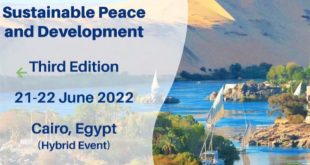Ahram Online
“Egypt’s President Abdel-Fattah al-Sisi inaugurated the Egyptian-Japanese University for Science and Technology in Alexandria’s city of Borg El Arab. He also inaugurated a number of private universities”, the Presidency said on Wednesday.
Sisi stressed that the newly announced system for Thanaweya Amma (national secondary school certificate) exams, aim at reducing human error in assessing exam papers. The new system introduces an electronic testing system.
The president added that “a different system of attendance in schools will be applied, as a preventative measure against COVID-19”. He explained that students will go to school only between 2 to 4 days per week. “Decreasing the ratio of students per class, aims at maintaining social distancing”, the president added.
Sisi addressed the issue of ‘rapid population growth’, saying “the population, which stands at 103 million now, is expected to reach 194 million people by 2050”.
“To deal with the expected doubling of the population, the government needs to double its infrastructure projects during the coming 30 years”, he added.
At the opening event, Prime Minister Madbouly said, “education is an issue of national security and represents a top priority for the government”.
The prime minister said, “Egypt faces challenges in education, such as the high number of students per classroom, poor education quality indicators, high illiteracy rates and insufficient technical education schools”.
Madbouly said, “the government has invested E£100 Billion in education, and higher education, over the last six years”.
Minister of Education Tarek Shawki said. “a new book on ‘Values and Respect of Others’ will be included in the school curriculum for third graders”.
The ministry will coordinate with the ministry of youth and the relevant body of the armed forces, to make physical education in schools a pass or fail course.
“The ministry plans to distribute 1.8 million tablets to students, install 36,000 computer screens and a new fibre optic network in schools to strengthen the educational experience”, Shawki said.
He explained that “the new Thanaweya Amma exam (national secondary school certificate) system will allow students to take more than one mock up test for the same subject in order to improve their grades”.






